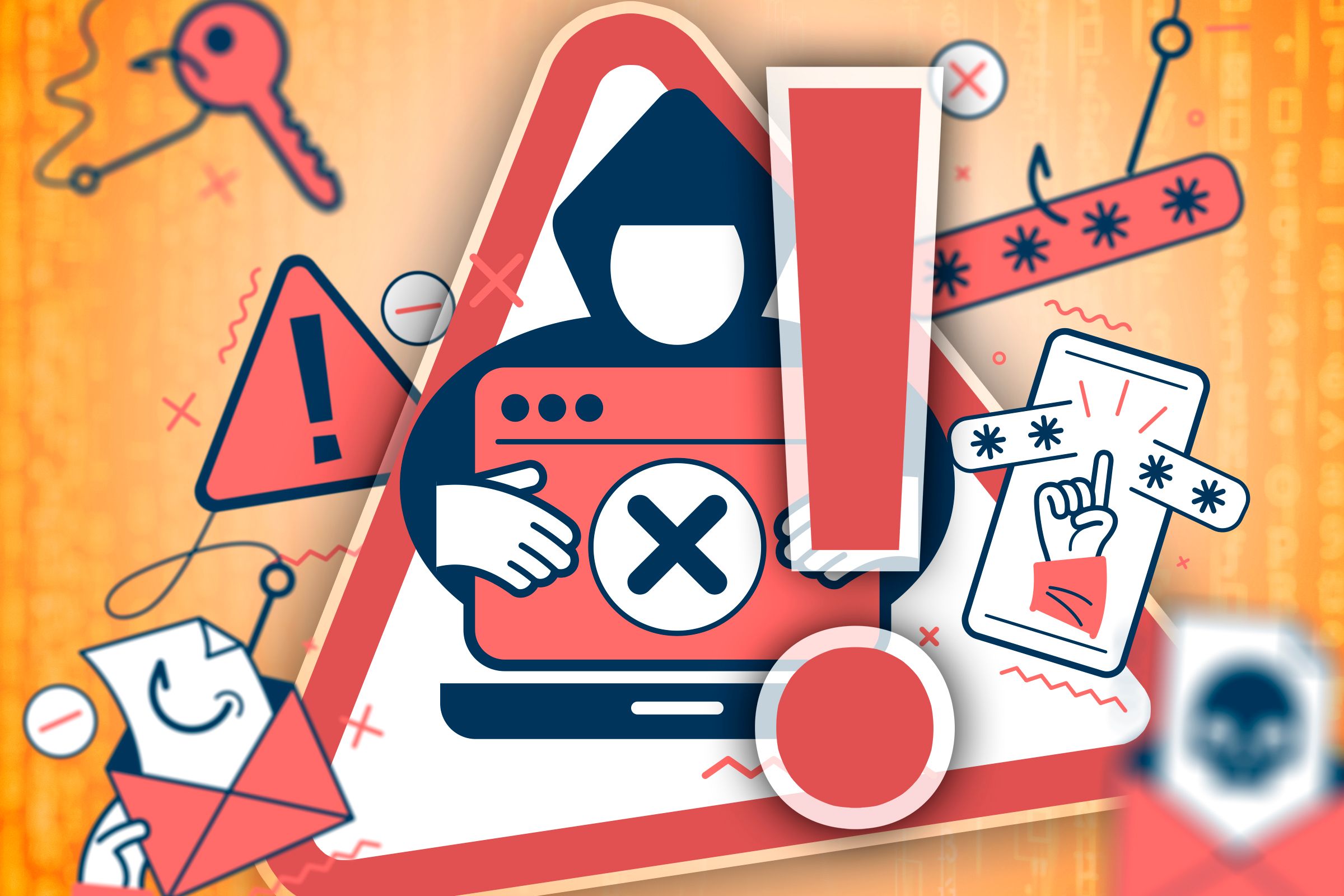Scammers take advantage of not just the vulnerable, but also the average internet user. Scams often create a sense of urgency, and scammers utilize many resources to make them appear as believable as possible. Read on to find out the most common types of scams and what to look out for.
1 Phishing Scams
Phishing is a type of fraud designed to trick victims into divulging sensitive information such as login credentials, credit card numbers, and bank account information. The most common types of phishing are done through email and messaging platforms, and other avenues include SMS and telephone calls.
Have you ever received a suspicious-looking message from a payment processor asking you to verify your account, but don’t have an account with that particular company? This is just one type of phishing.
A phishing message is designed to appear urgent and timely, and may even include a familiar logo. It usually asks you to click a link or verify your account. But once you do, you’re led to a fraudulent website that attempts to capture your login details.
To protect yourself, double-check the sender’s email address. Scammers often have strange email addresses and use slight variations or misspellings of legitimate domain names. Be wary of messages that impose deadlines or contain threats.
Education is your best defense against phishing attacks, so learn to spot other warning signs of phishing.
Avoid downloading anything from an unsolicited email, no matter how urgent it may sound. It’s likely malicious.
We’ve become so used to next-day delivery and being able to buy just about anything, but this comes with risks. Online shopping scams continue to rise, and these scam websites impersonate trusted payment providers like PayPal or pretend to be legitimate shopping websites. Some may even trick you into installing malicious software on your device and compromise your sensitive data.
Some indications that a website is pretending to be legitimate is the domain name; if there are a lot of hyphens or misspellings and the domain is newly registered (search the Whois database to check when the domain was registered), treat it as suspicious. If the website also seems to mimic or reference a well-known brand and has suspiciously low prices, it’s likely to be a scam.
To help shop securely online, do a quick Google search of the domain followed by the word “scam” to search for reviews. Trustpilot can help, but be wary of fake reviews.
Always check the business registration number when shopping on a new website. Just search “check business registration” with your local government name to find the relevant database.
3 Virus and Tech Support Scams
Let’s talk about those unsolicited pop-ups that say, “Your computer has been infected,” and to contact Windows support. Guess what? It’s not Microsoft, and there is no virus (but if there was, a website pop-up or an unsolicited call would be the last to inform you). When a victim dials the number, the scammers ask the victim to pay in order to “repair” the computer or “remove” the “virus.”
As detailed by the FBI, tech support fraud was the most reported cybercrime against those over 60 in the United States, with 18,000 complaints to the Internet Crime Complaint Center in 2023.
If you’re suspicious of an unsolicited call or email, search for the provided number on Google, followed by the word “scam.” Often, these numbers get reported by other people. However, scammers tend to burn through numbers quickly and change them frequently, so it’s not enough. Ultimately, never give anyone access to your computer.
4 Romance and Cat Fishing Scams
Have you met anyone on social media or a dating app recently? Be extra vigilant with online relationships, especially if they’re quick to love bomb. Scammers use fake online identities to gain trust and, often over a period of time, use the allure of romance to extract money from their victims. Scammers tend to claim to work outside the victim’s home country, making it easier to avoid meeting in person and keep the scam going as long as possible.
Scammers use details shared online to better understand and target you, so be wary of what you post on social media and dating profiles. You can do a reverse image search on Google of the person’s photo and name to see if it pops up elsewhere.
Do not send money to anyone you’ve never met, no matter how convincing their story might be.
5 Job Scams
I live by the saying, “If it’s too good to be true, it probably is.” Employment scams are everywhere, from legitimate online job boards to Facebook groups and even your email inbox. The goal of employment scams is to manipulate the victim into sending money or sensitive information, or even doing some work for free. A significant amount of resources can go into designing and executing online job scams, all to get the victim committed enough that it’s often difficult to say no.
The scammers may appear professional and even interview you on video chat. However, at some point in or after the interview, they’ll either ask you to purchase some equipment or request your sensitive data (such as your driver’s license or Social Security number.) Another indication of a scam is if you’re asked to pay to start the job.
6 Lottery and Prize Scams
You get a call or message saying you won the lottery or a prize; it must be your lucky day! Until you realize you need to pay a fee or provide your account information to receive the “prize.” Scammers often impersonate government institutions or well-known organizations to make it seem like you’ve truly won.
Another sign of a prize scam is the sense of urgency it creates. Scammers tend to pressure you and claim that it’s a limited-time offer to get you to take action before you’ve even had time to think or research.
Another common tactic is sending you a fake check and then asking you to return some of the money. Do not deposit the check. Contact your bank immediately.
7 Charity Scams
Scammers set up fraudulent charities to exploit their victims’ generosity, typically during international crises or natural disasters. They may go to great lengths to make the charity appear legitimate, such as maintaining active social media profiles, using fake websites, and writing professional-looking emails. They can also “spoof” their caller ID to make it look like a charity.
The first thing you should do is verify the charity. Obtain the charity’s full name and run it through the IRS’ Tax Exempt Organization database to confirm if an organization is legitimately tax-exempt.
Never work with charities that request donations by gift cards or wire money—it’s a scam.
There are many more types of scams operating online, so stay vigilant and informed. As scammers become more sophisticated and technologies become more advanced, the best defense is education. Always stop and think—it may just save you.

